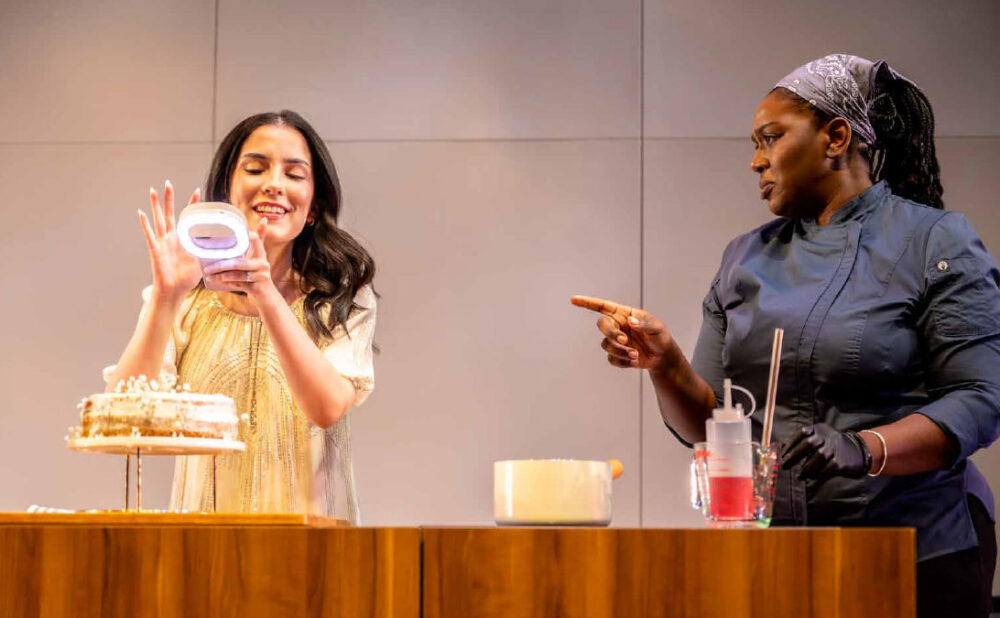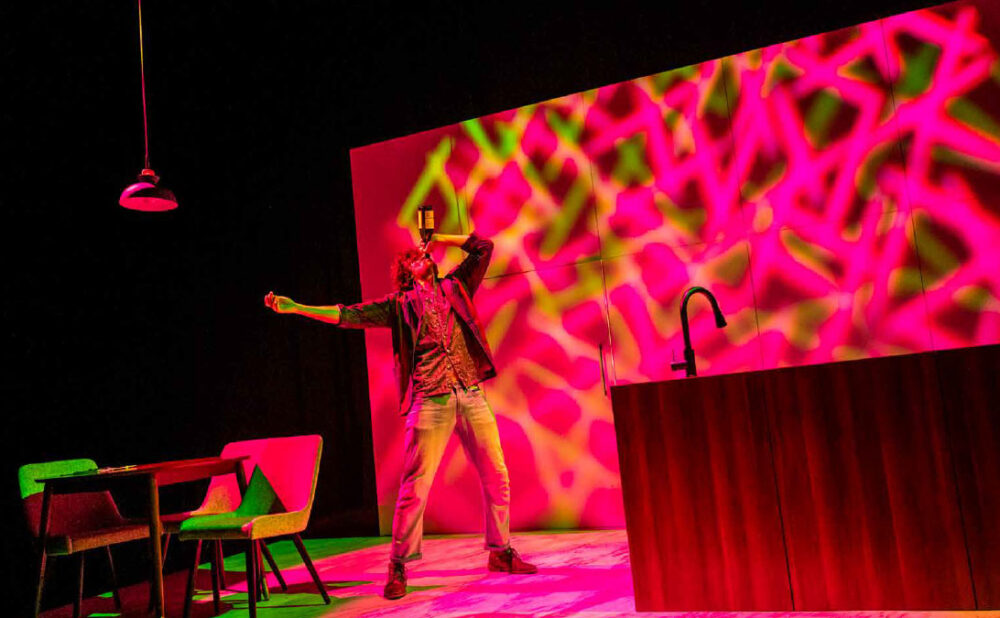Ambitious new play ‘Prodigal’ offers compelling blend of comedy and drama
New show effectively enters eat-the-rich territory
What: Prodigal
Where: Crow’s Theatre, 345 Carlaw Ave.
When: Now, until Mar. 12
Highlight: Dan Mousseau’s passionate Orville Peck lip sync
Rating: NNNN (out of 5)
Why you should go: Though Paolo Santalucia’s play tackles heavy topics, it does so with a joy and playfulness that reminds us why we come to the theatre in the first place.
EAT-THE-RICH satires are in vogue. White Lotus, Triangle of Sadness, The Menu: there’s no shortage of ways to get your fix of millionaires pelting caviar at each other.
The Howland Company’s complex new play, Prodigal, which opened this Friday at Crow’s Theatre, starts out like one of these satires. But it’s a fake-out. Though writer-director Paolo Santalucia uses satirical tools to entertainingly build up Prodigal’s world, it ends up digging much deeper.
The show centres on the Clarks, a wealthy, influential Toronto family. They’re having a busy week: uptight younger son Henry (Cam Laurie) is having his engagement party and grizzly father, Rowan (Rick Roberts), is about to become Governor-General of Canada.
To secure the job, however, Rowan has to tie up a loose end. His gay and alcoholic eldest son Edmund (Dan Mousseau) has been withdrawing vast sums from the family account to spend extravagantly across the world in a manner unacceptable for the son of the Governor-General. To save face, Rowan cuts him off from the account.
Penniless, Edmund is forced to play the prodigal son and return home. Drunk. With a hookup. In the middle of Henry’s engagement party.
Before he arrives, the show highlights the Clarks’ entitlement by comedically contrasting them with Pauline (Meghan Swaby) and Quentin (Jeff Yung), the down-to-earth husband-and-wife culinary duo hired for Henry’s party.
Henry and his vain fiancé Sadie (Veronica Hortiguela) are particularly grating. Sadie tries to cajole Pauline into appearing on her Instagram so Sadie’s business can prove they’re “amplifying women and providing a platform for people who, you know, might not have one or whatever.” Pauline refuses and, minutes later, Henry barrels into the kitchen, insisting she apologizes for hurting Sadie’s feelings.
But Edmund’s dynamic entrance forcefully disrupts this amusingly uptight atmosphere. Though the play is text-heavy before he crashes the party, he brings with him a whole raft of action: he makes out with Levi (Michael Ayres), a man he just met, on the kitchen floor; he destroys Henry and Sadie’s party cake; and, in a thrilling sequence, he passionately lip syncs to Orville Peck’s Any Turn.
It’s a striking contrast to what came before, and Logan Raju Cracknell’s compassionate lighting design does much to punctuate the shift. Before Edmund’s arrival, the lighting is fairly muted — mostly bright white light to match Mark Hockin’s bright white set and the Clarks’ bright white privilege. But when Edmund’s on stage, it fills with colour. Magentas and purples cascade off the wall in spellbinding patterns. This sudden influx of colour is emotional and, perhaps, is a visual metaphor for the injection of Edmund’s queer joy into a sterile home.
But as Edmund begins to confront himself and his family, joy turns to heartbreak and the colour fades. In the show’s most touching moment, a spotlight isolates Edmund as he sits on the ground and vulnerably shares the moment he realized his parents would never accept his queerness. This quiet theatricality is a heart-wrenching swerve from Edmund’s prior exuberance.
Prodigal is an exciting tapestry of genres and characters that takes big swings and has ambitious sprawl. That said, much of this sprawl is confined to the first act. The second half, which is just 40 minutes to the first half’s 90, seems in a rush to conclude the story. This leads to the structure feeling slightly lopsided.
In any case, Prodigal is a stirring achievement for The Howland Company. Though it tackles heavy topics, it does so with joy and a playfulness that reminds us why we come to the theatre in the first place.








